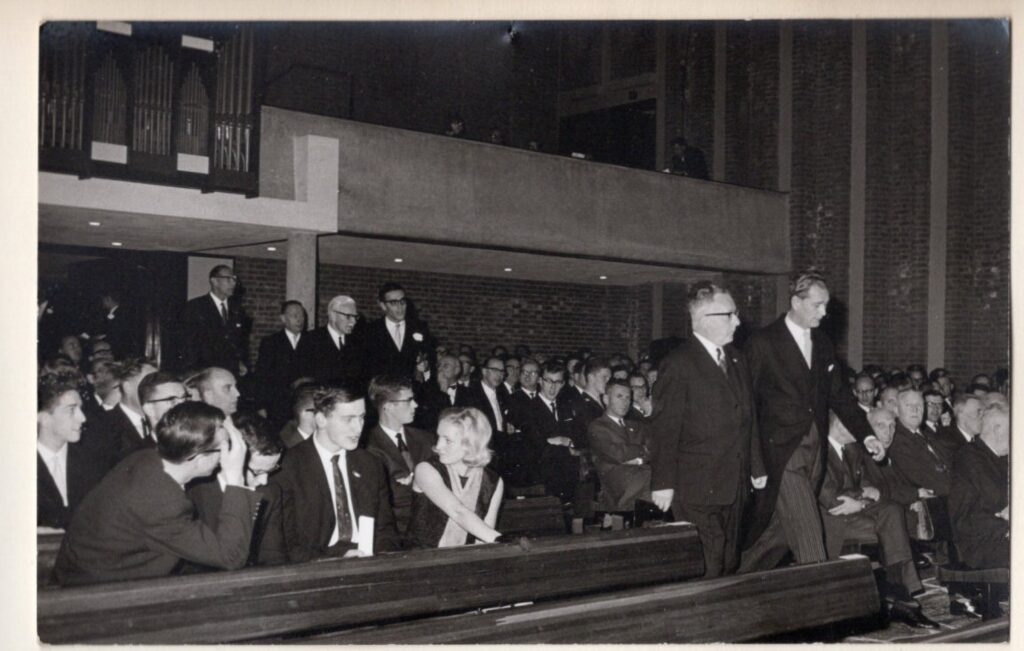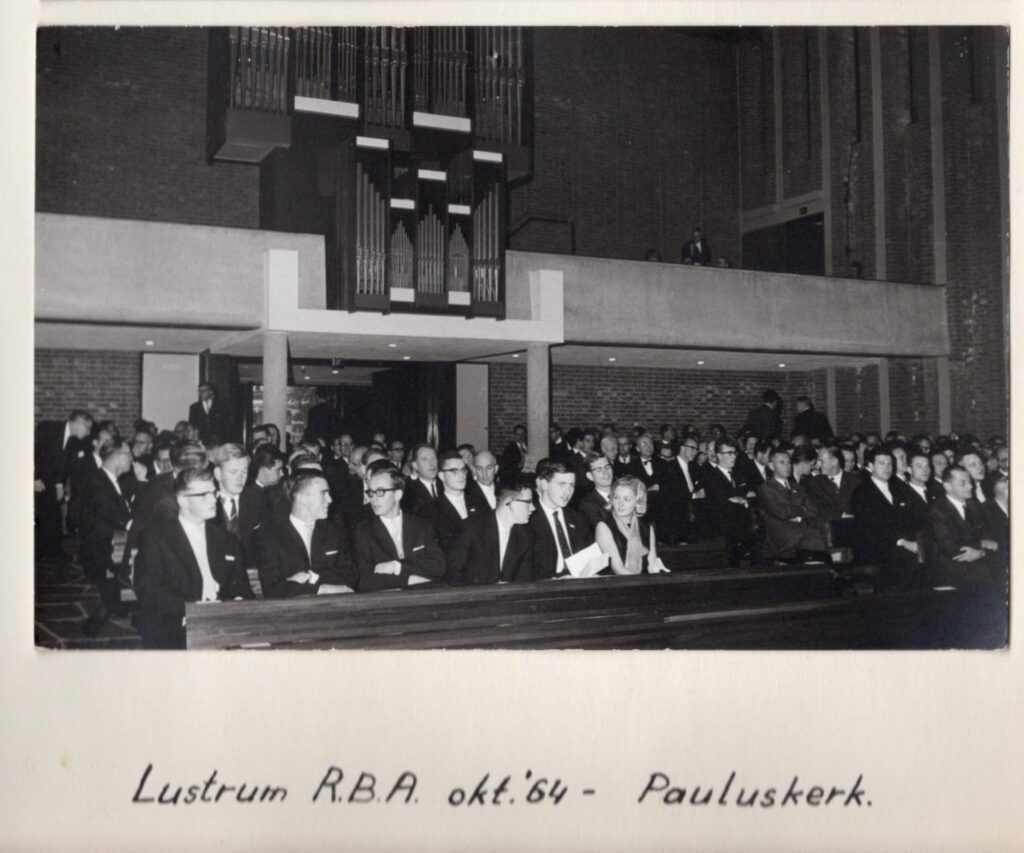Member of Parliament Corry Tendeloo, a great advocate of women’s rights, was instrumental in abolishing the mandatory retirement of married women in the civil service and the legal incapacity of married women. One of her actions was to apply under a pseudonym as a student at the Tax Academy. She was flatly rejected.

Prof. Johannes van der Poel, the founder-director of the Tax Academy was against women holding senior positions in the Tax Administration. Even after the abolition (in 1957) of the law forcing women civil servants to retire, he continued his fight. It was not until 1963 that the first woman, Marijke Dittman (born 1943), was admitted to the Tax Academy. After graduating from the Amsterdam Lyceum, she took the Tax Academy entrance exam. More young women had applied, but Marijke, then 20 years old, was the only one to pass selection.
She had no idea of what was hanging over her head or the political tensions that preceded her arrival. She had chosen the Tax Academy from several brochures. She thought women were highly suited to the work: it was social and creative, you needed to use your brain and it was not physically demanding. Another advantage was that training at the Academy was paid for by the state and she did not have to burden her parents with the costs of a university education.
Marijke herself said later that she realised, in retrospect, that she had probably been a ‘token hire’. The teachers were not unkind, but neither were they particularly accommodating. Her fellow students were unfriendly with just a few exceptions. On the first day, Marijke received a bunch of flowers from the student society. It was at that point that she realised that the young men had gone through initiation into the society together, and that they all already knew each other. During the coffee break, the men crowded into the student society (now the Museum studio on the third floor).Marijke was actively excluded and just sat in the classroom. However, a senior student brought her a cup of coffee: she didn’t remember if he did it every day, but at least on the first day, he did.
The still young Marijke Dittmann didn’t like going to lectures because of the hostile atmosphere. On one of his many visits, Van der Poel, who remained very involved even after his retirement, said: ‘Miss, if I were still in charge, you wouldn’t be here, because we don’t have ladies’ toilets.’ Fortunately, Marijke’s exams went well and she could afford to miss lectures. The subject she enjoyed most was old Dutch law, taught by Van Hattem. She attended those lectures.
Every freshmen – except Marijke – was assigned a senior student as a mentor. When she complained about this to Deputy Director De Swart, he decided on the spot that he would be her mentor. He arranged for her to be allowed to join the Rotterdam Female Students’ Society on the condition that she enrol in one subject at the University of Applied Sciences. With the student society and her student house on the Heemraadsingel, Marijke was able to experience some of the fun of student life.
Miss Dittman was not a registered member of the Tax Academy’s student society, but she did receive invitations to parties and the yearbook. She is even mentioned in the 1964 yearbook: ‘Miss M. D.ttm.nn: THE WOMAN WHO DID!’
The Tax Academy was closed in 1966, after everyone in the 1963 cohort had been appointed a supernumerary. The programme was transferred to Leiden University. One of the lecturers did not want women to work in the field and he sabotaged Marijke when she had to take exams with him. He called her ‘a child’ and compared her to his granddaughter. Apparently, precious little had changed since Miss Engels was interviewed in 1948.


Not allowing herself to be bullied anymore, Marijke quit her studies, left the Tax Office and got married. Before long, however, she discovered that without qualifications she could not really get ahead. She could get a job, but the work wasn’t very interesting. She decided to go back to university and completed her studies at the Vrije Universiteit. There she experienced just how relaxed and comradely studying could be.
Mrs M. Stolk-Dittmann moved into tax consultancy and wrote articles in legal journals. In business, it didn’t matter that she was a woman, all that mattered was that she did a good job. She always worked full time, but at a young age had resolved to retire early. In 1983, she was deputy staff director of Elsevier-NDU, in charge of tax affairs. On 1 September 1983, she was appointed managing director of Elsevier S.A. in Neuchâtel, Switzerland. There, she was in charge of the day-to-day management of Elsevier S.A. while she continued to handle the international tax affairs of the Elsevier-NDU group.
True to her plan, Marijke, now Mrs De Jong-Dittmann, retired at age 48. She focused on photography and other enjoyable things that life had in store for her and her second husband.

